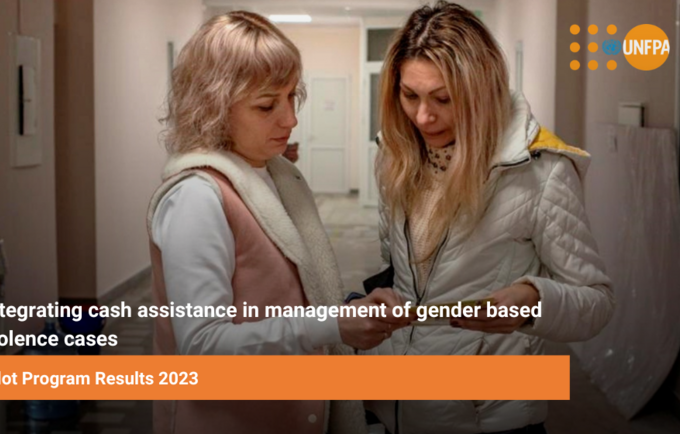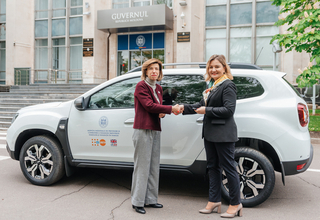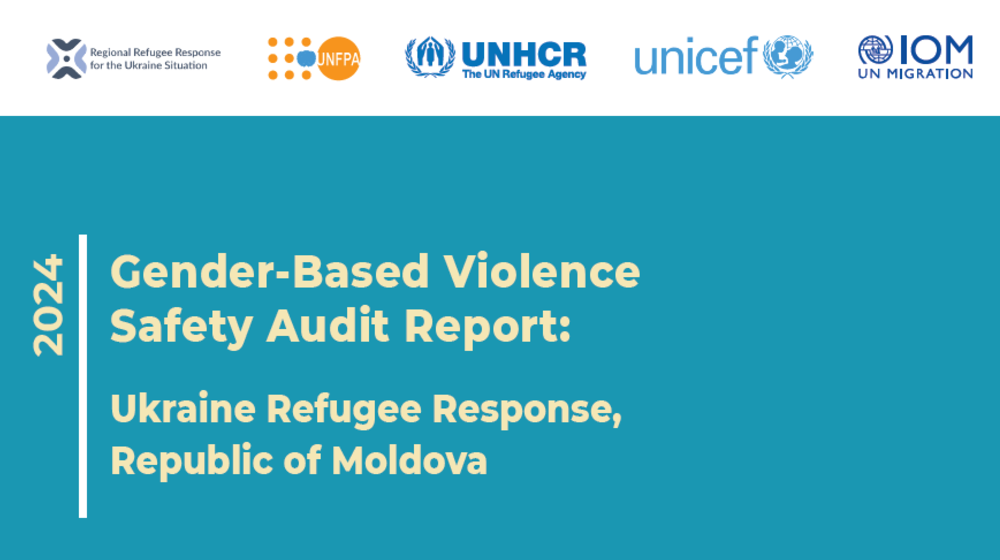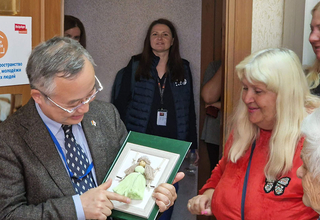Financial aid for GBV survivors is a crucial element in the management of violence cases. The mechanism was tested in the Republic of Moldova during the year 2023, within a pilot program of AO „Artemida”, supported by UN Population Fund (UNFPA) in collaboration with the Ministry of Labor and Social Protection (MMPS).
The results were unveiled during a workshop on November 30. Attendees included representatives from the Ministry, UNFPA, and various non-governmental organizations dedicated to preventing and combating gender-based violence.
According to NGO „Artemida”, until now, around 300 women have participated in the pilot program, and the financial aid was a lifeline for most of them.
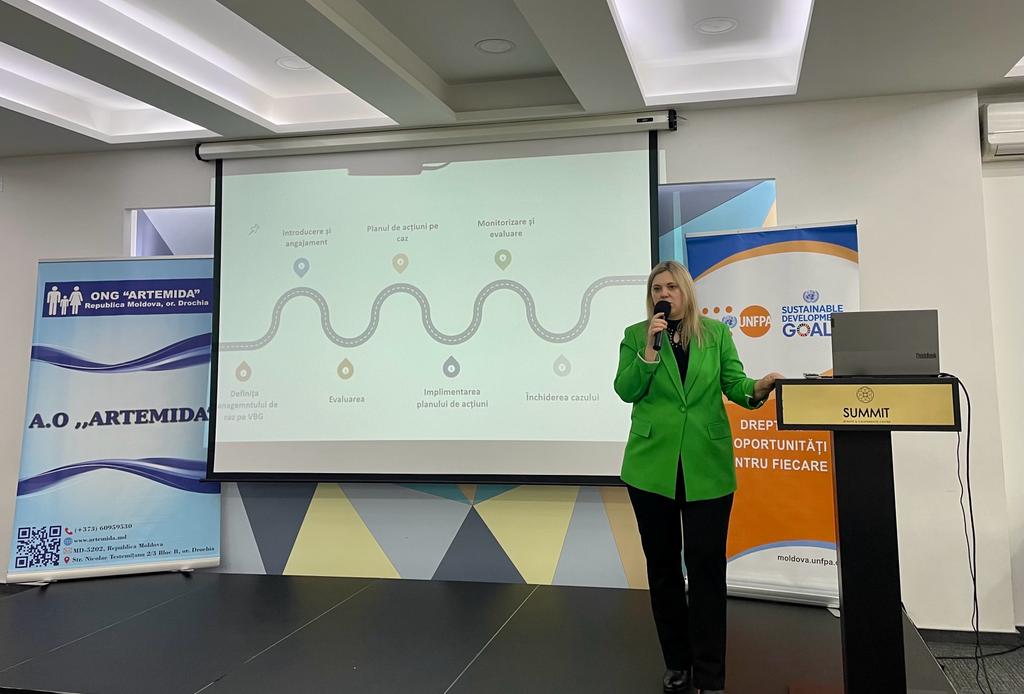
„Many women continue to stay with abusers due to economic dependence. This financial aid supports them to get out of the vicious relationship, while gaining autonomy and confidence to rehabilitate themselves”, said the deputy director of NGO „Artemida”, Ina Grădinaru.
„The financial aid helped me pay my rent for 3 months, leave my abuser, work with a lawyer, and also take classes to get a job. Now I'm fine”, confessed one of the women participating in the program.
Financial aid – an integral part of violence case management
During the pilot program, the financial aid was being dispensed after a thorough assessment of individual needs. Many recipients identified needs beyond financial support, highlighting the importance of psychological and/or legal assistance.
The financial aid component is just one facet of a comprehensive gender-based violence case management strategy, encompassing six key stages: case identification, needs assessment, case action plan, connection and referral to other services, case monitoring, and supervision.
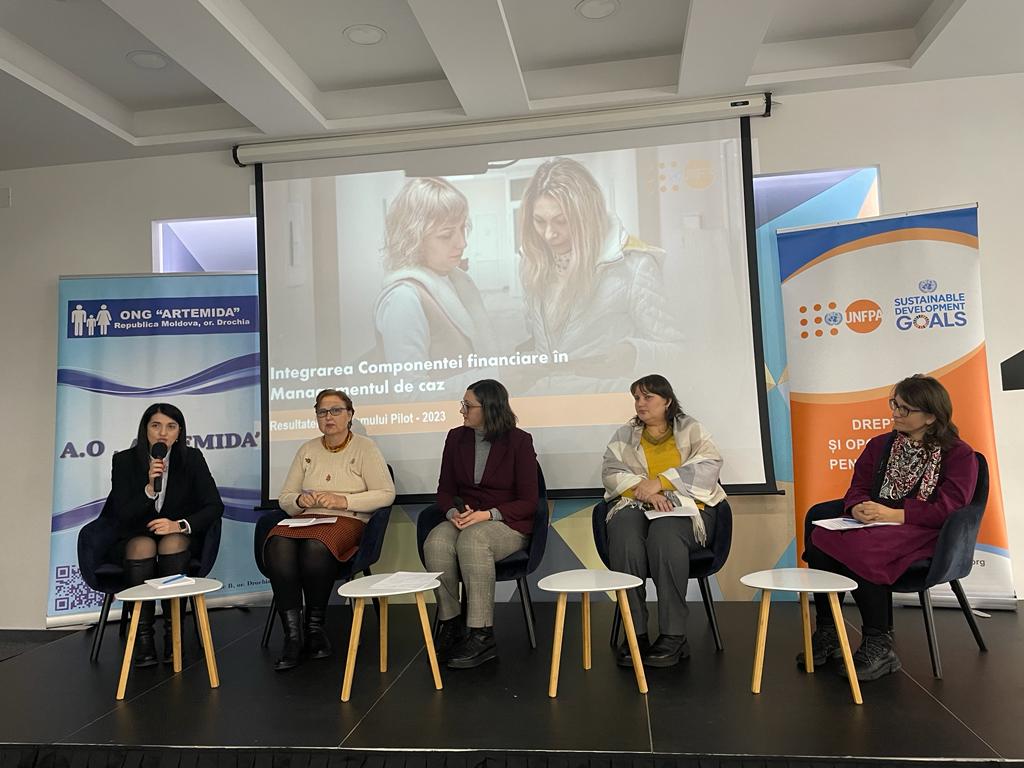
Simion Sîrbu, Director of NGO „Artemida”, emphasized the effectiveness of a holistic approach, stating, that: „After 19 years of experience in this field, we can confidently say that when all six stages of case management are respected, a domestic case of violence can be easily resolved. Conversely, when not respected, the result is delayed”.
The cash assistance provided within the pilot program conducted by NGO „Artemida”, with the support of UNFPA as part of the humanitarian response, has been extended to both refugee women and those in the Republic of Moldova. These recipients include survivors of violence or individuals facing a high risk of violence.
The guiding principle for disbursing financial assistance was through bank transfers.
Violeta Terguță, GBV Program Analyst at UNFPA, emphasized the essential nature of tailoring financial aid to the real needs of individuals based on assessments conducted by specialists. She highlighted that funds are granted as emergency assistance to address the immediate needs of survivors, with disbursements occurring in installments. Some individuals may require a single installment initially, while others may need assistance for a more extended period. Throughout this process, the focus remains on addressing the rights and needs of survivors, ensuring both immediate assistance and the opportunity for long-term rehabilitation.
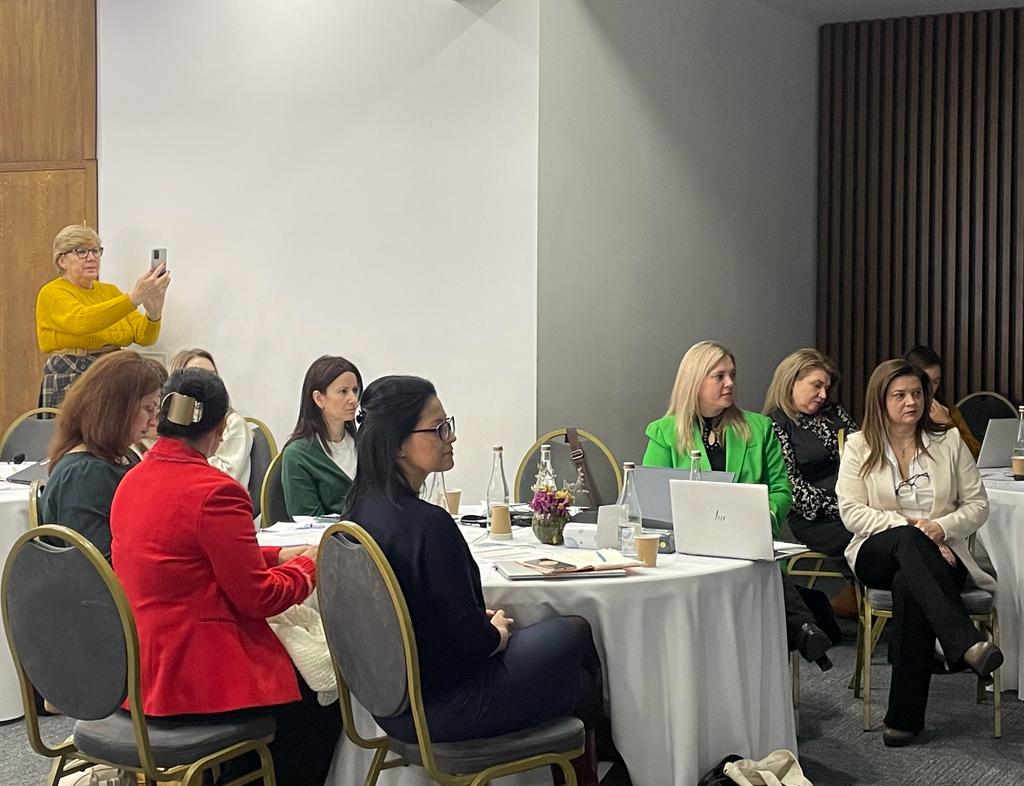
Financial aid contributes to the empowerment of women affected by violence
During the panel discussions, representatives from the Ministry of Labor and Social Protection and civil society praised the new intervention tool in gender-based violence cases, which was piloted with the support of UNFPA.
Lilia Pascal, head of the Gender Equality and Violence Prevention Policy Directorate at the Ministry of Labor and Social Protection, expressed gratitude to UNFPA for initiating this process in the Republic of Moldova. She highlighted the obligation of Moldova, following the ratification of the Istanbul Convention and Article 20 therein, to provide protection and assistance to individuals affected by violence. Pascal emphasized the financial aid's role in supporting support services and urged consideration of the sustainability of this mechanism, its alignment with legislative aspects, and identification of suitable integration levels within the system, whether in general or specialized service categories.
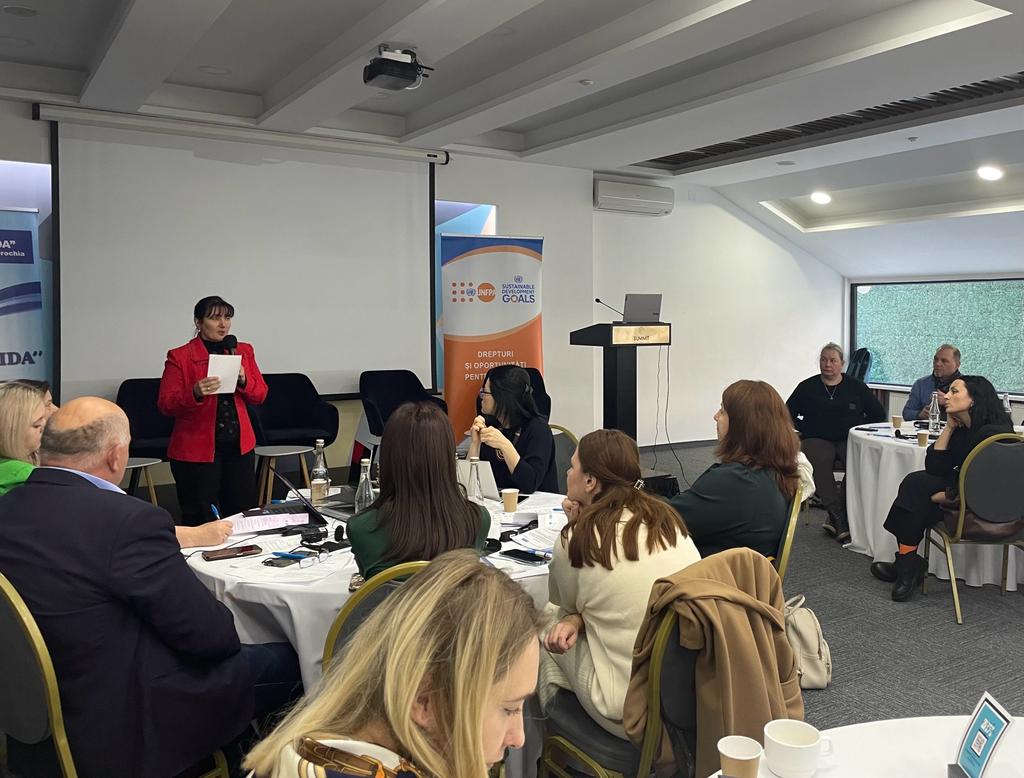
Additionally, Pascal commended the empowering impact of this mechanism on women. Beyond financial aid, she noted that it equips them with valuable life skills. In comparison to similar programs where individuals received direct aid, here, they are encouraged to engage with the banking system, create bank accounts, and make assisted purchases, fostering financial, nutritional, and psychological education skills. Pascal reiterated that this holistic approach contributes significantly to the empowerment of survivors and their children, proving to be a substantial asset for both individuals and the entire system.
Natalia Plugaru, Deputy Representative at UNFPA, reiterated the organization's commitment to refining the program and integrating it seamlessly into the national system.
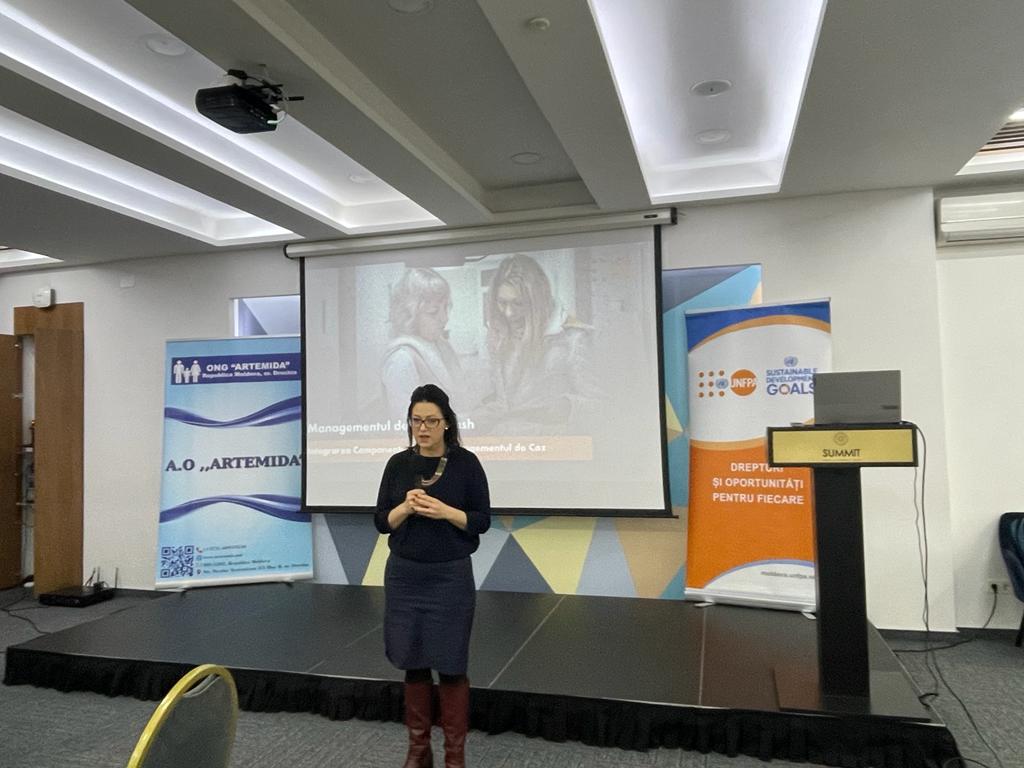
„The mission of UNFPA is to end gender-based violence by 2030, both globally and in the Republic of Moldova. Therefore, we are pleased that this first pilot program is appreciated by partners, and we will make additional efforts to improve the tools for the benefit of women and all individuals affected by violence”, she emphasized.
This financial aid mechanism in the management of gender-based violence cases aligns with international standards and recommendations, marking a significant stride towards breaking the cycle of violence.
